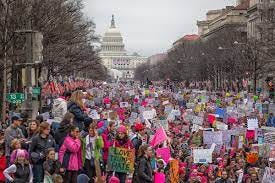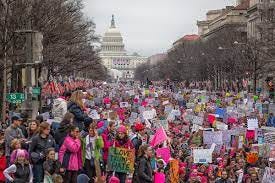Dianne Neimann’s Advocacy For Feminism
“Feminism is about having a spot at the table no matter your identity,” Dianne says. We often look at our identities as limitations because that is how society portrays them, but learning to use your “limitations” as your biggest strength is incredibly powerful. Every person on this earth deserves and should receive equality, but there is no question that our communities are still discriminating against women.
Dianne Newman has been fighting for women’s rights for most of her life. In her teens, which was in the 60s, she began to notice the microaggressions that were directed towards young women in society. Little things, like women expected to wear high heels, bras, and shave their legs in order to look pretty enough for another man is an example of how society sexualized women’s bodies and took control. Dianne openly burned her bras in the 60s and stopped wearing high heels as a public statement that she did not need to buy into society's norms of being a woman. She could express herself in the ways that she felt made her a woman. Nowadays, women in power are labeled with microaggressive adjectives such as emotional, bossy or crazy. The language that is used can be demeaning towards any woman. Microaggressions take space in the women’s rights issue, but throughout this time, women also experienced greater scale agressions that escalated the movement even more. Dianne knew that she deserved the same rights as men, but did not know where to start advocating. She started to take small actions that proved to the system and herself that she was independent and capable of taking care of herself. She opened up her own bank account, not under another man's income and has kept it that way ever since. She also confronted the gender based assumptions on various paper works that she and her husband had to sign. Dianne even attended the women’s march in Washington D.C during Trump's inauguration.

In the past decade, Dianne chose to dedicate her life’s work towards empowering and nurturing young women. She feels the education system still has limitations related to women’s rights, and it is not addressed enough. It all starts in middle school or even elementary when, in the classroom, girls are not encouraged enough in the sciences and maths. There are very few women in the STEM field relative to men. It almost feels as if there is a barrier for women who want to be educated and follow this career. It is not explicitly mentioned to girls that science is not for them, but it is implied through microaggressions. Women are needed in these fields though. Dianne collaborates with women in STEM summer programs that expose female students to the field and sparks their interests. For this camp, young girls are recommended by their math and science teachers and have to submit an application essay. This on it’s own is powerful because females who are passionate about STEM are building up their self esteem. It is so awesome when women and girls are built up by their community. Once the girls are admitted, they spend their days amongst other passionate young girls while conducting experiments and sparking their curiosity in labs, nature and classrooms.
Right after speaking to Dianne about her work in women’s rights, I felt extraordinarily stimulated. She exerted her bubbly personality with incredible insight into her personal beliefs and motions. I admire her not only for her work, but her personality and how she portrays it to the people she is around. Dianne created a world for herself where she can be independent and free, and along the way she is embracing her beliefs to influence young women growing up in the patriarchal society.




As a adult and experienced woman in science (20 years in academia and biotech/pharma industry), those microaggressions continue to play a role in the work place.
Well done Ruby. Hard to believe in today's world that women still have to advocate for equality.